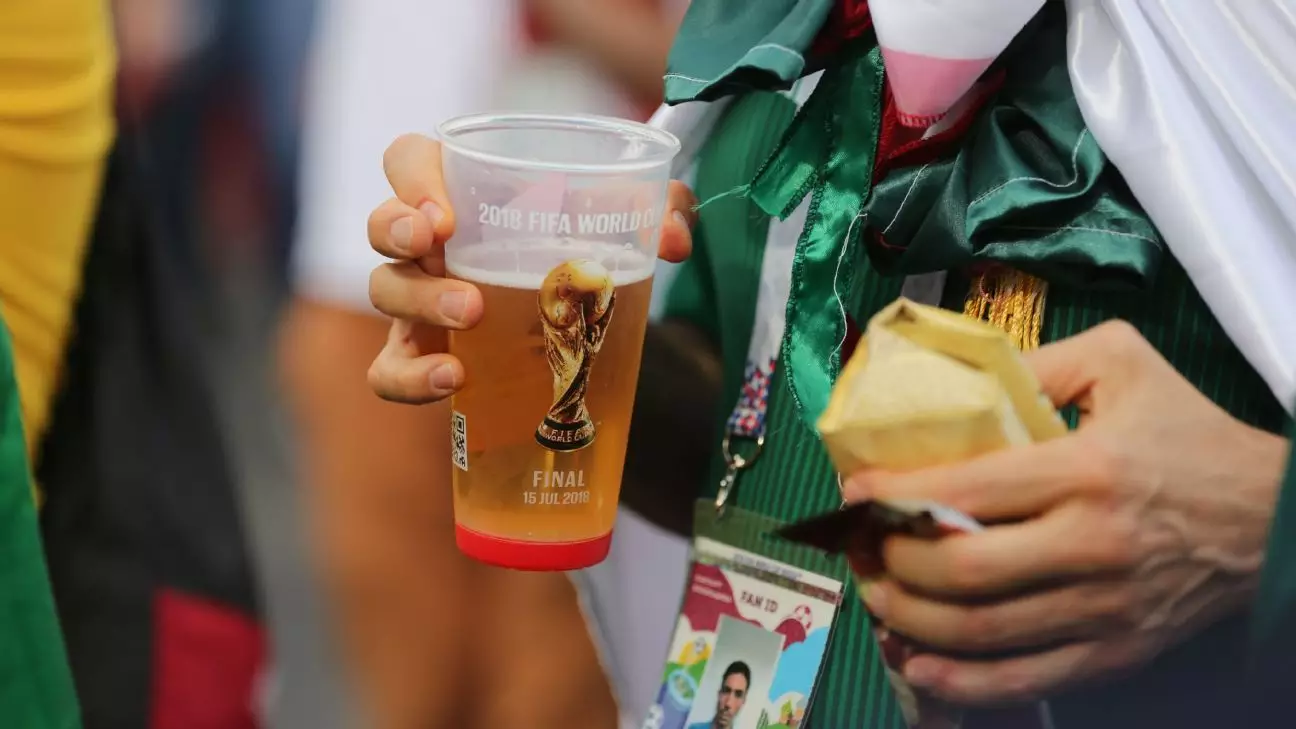The 2034 World Cup, set to be held in Saudi Arabia, marks a significant milestone not just for the nation but for the global footballing community. However, one of the pivotal takeaways from this announcement is the strict prohibition of alcohol consumption during the tournament. This decision, highlighted by Prince Khalid bin Bandar Al Saud, the Saudi Ambassador to the UK, underscores a commitment to upholding local customs and cultural norms that are intrinsic to the region. Unlike many previous World Cups where alcohol was an integral part of fan culture, this tournament is set to challenge expectations, inviting spectators to rethink their engagement with the event.
This directive goes beyond mere regulation; it echoes the broader cultural ethos prevalent in Saudi Arabia. By ensuring that the sale and consumption of alcohol are entirely forbidden, the Kingdom seeks to offer an experience that is respectful of its Islamic values. The ambassador’s remarks, suggesting that enjoyment is possible without alcohol, aim to reassure fans that they can still have a fulfilling experience while adhering to cultural restrictions. This situation invites fans to engage with the tournament on different terms, as they adapt to the nuances of Saudi hospitality without the involvement of alcoholic beverages.
The host nation’s approach to such sensitive issues is indeed reflective of a broader trend in the management of international sporting events in countries with strict cultural practices. The comparison to the 2022 World Cup in Qatar is particularly noteworthy. Previously, the Qatari authorities had wrestled with the balance between catering to international expectations and staying true to their own societal norms. The last-minute decision allowing alcohol in certain venues created a backdrop of confusion that fueled debate among fans and officials alike.
In the case of Saudi Arabia, the ambassador’s comments regarding the handling of cultural differences evoke a challenging discourse on expectations of inclusivity. While many may find the restrictions a barrier to enjoyment, the intention seems rooted in preserving the essence of Saudi culture. The ambassador’s jest about fans’ reliance on alcohol raises questions about Western perceptions of what constitutes enjoyment—highlighting the realities of cultural relativism in a globalized world.
Despite the emphasis on hospitality, looming concerns regarding human rights violations cannot be overlooked. Organizations like Amnesty International have warned of potential exploitation of migrant workers in the lead-up to the World Cup, casting a shadow over the event’s celebratory aura. In addition, there are longstanding fears regarding the treatment of LGBTQIA+ individuals in a country where being openly gay is legally punishable by death.
The ambassador’s assurance that “everyone will be welcome” stands in stark contrast to the realities that many LGBTQIA+ fans may face. This declaration raises serious questions about the true safety and acceptance of these individuals within Saudi Arabia’s borders during the event. It implies a paradox where inclusion is promised, yet the basic rights and security of certain groups are at stakes, challenging the very essence of what a ‘world event’ should encapsulate.
As the 2034 World Cup approaches, the balancing act of respecting cultural boundaries while promoting global inclusion becomes increasingly complex. Saudi Arabia’s decision to eschew alcohol may redefine the spectator experience, shifting focus toward a more culturally immersive celebration. However, unless serious concerns about human rights and inclusivity are addressed, the tournament risks becoming a stage for international criticism rather than the celebration of unity it aspires to be. Therefore, the world will be watching closely as the event unfolds, taking stock of whether Saudi Arabia can indeed be a hospitable host while retaining its cultural identity.

